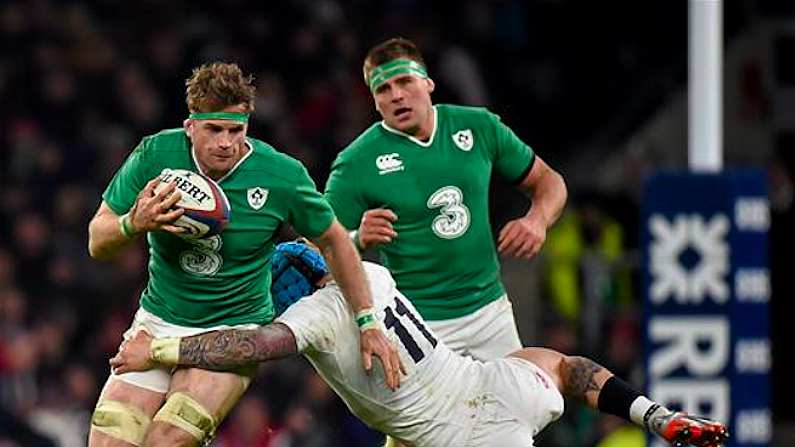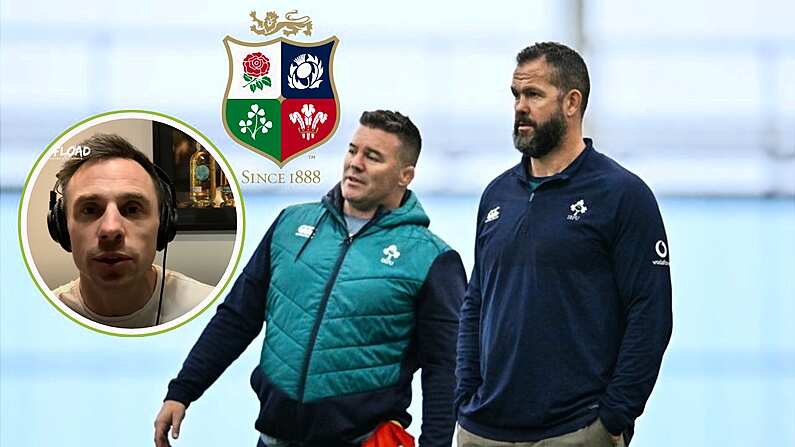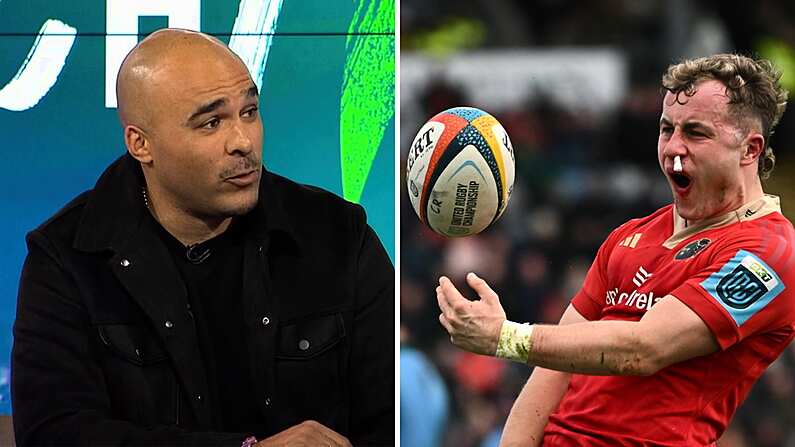While Ireland won't be competing for a third Six Nations title in a row, today's clash with Scotland is far from a dead rubber. It will have a vital bearing on Ireland's World Cup pool at the 2019 edition of the tournament.
Given the absurd timing of the draw for the Rugby World Cup pool stages, Ireland will be allocated opponents for 2019 based on their performances through 2016. Allow us explain the whole complicated process...
When is the draw likely to happen?
The draw for the 2015 World Cup took place in 2012, which fans of mathematics will point out was three years before the tournament.
The scheduling meant that Wales, Australia and England were placed in the same pool, despite being in the world's top six at the time of the tournament.
Much criticism was levelled at the timing of the draw, with the charge being that it did not give an accurate depiction of the strengths of each team by the time the tournament began. World Rugby CEO Brett Gosper confirmed that discussions had taken place with a view to moving the draw for Japan 2019 closer to the tournament, saying that "we’ll look at that next time to see if it’s possible to make the draw closer to the tournament".
We contacted World Rugby, who told us that that the date for the draw had yet to be finalised. H
It looks likely to take place this year however, owing to the staging of the Olympics in Tokyo in 2020. Akira Shimazu, CEO of the Japan 2019 Organising Committee, told ESPN that the draw will take place in 2016, as World Rugby needed to sell some tickets before the Olympic behemoth hovers into ticketing competition:
The pool allocation draw will still be made sometime next year. But the match scheduling and the dates and venues might be announced at a later date. We have to start ticket sales fairly early.
We have tickets to sell for the Olympics and Paralympics -- we don't want to be in competition with each other as it will just have a negative impact.
We've been talking to World Rugby, but we need to have the draw and start selling tickets as early as possible. That's a unique situation to Japan that didn't happen in England -- but we are taking this into account and Brett [Gosper] is aware of that.
The comments of Shimanzu would seem to confirm that the draw will take place after the November internationals this year.
What exactly happened to Wales?
Wales dropped to ninth in the World Rankings just before the tournament draw following seven defeats in a row: three to Australia on a summer tour followed by an Autumn whitewash against Argentina, Samoa, New Zealand and Australia.
Despite winning the Six Nations Grand Slam in 2012, this run of results saw Wales drop to ninth in the rankings just days before the tournament draw, and as a result were treated as third seeds and lumped in with England and Australia.
The bitter twist of fate for the Welsh was the scheduling of an extra game against Australia for the Autumn internationals, which the Welsh Rugby Union used as an opportunity to make an extra bit of cash.
Had Wales not played the game, they would not have lost ranking points and would have finished eighth in the world, and avoided Australia and England. (This all ended up being academic thanks to England's spectacular implosion).
Okay, so we had better finish in the top eight of the World Rankings. Where are we now?
Ireland are currently ranked 7th, ahead of France and Scotland.
How likely are these rankings to change between now and the draw?
They are guaranteed to change. The rankings work on an extremely complicated 'Points Exchange' system. You can try and make sense of it on the World Rugby website.
The TL;DR version of this is that the rankings will change after each game in international rugby, with Six Nations, Summer tours and Autumn internationals all weighted the same.
So it's a fight between us and Scotland to avoid finishing ninth?
A number of things could change between now and then - the French could collapse and slide down the rankings, Wales might repeat their 2012 trick and Japan could come into contention for the top eight - but at the moment it looks most likely to be a shoot-out between Scotland and Ireland to finish in the top eight.
So do we have to beat the Scots?
Ideally, as it will leave our task considerably easier.
Somebody much more intelligent than us has created a rankings calculator online, and these are the outcomes which will see Ireland stay in the top eight:
So if we lose to Scotland, we will slip behind them.
There is only one way in which we can be rescued by the French. Ireland will have to keep the margin of defeat to less than 15 and hope that England beat France by more than 15 points. In that instance, Ireland will be eighth, and the French will drop to ninth.
Should we lose, will we be able to overtake them in time for the draw?
In theory we certainly can - in theory we can climb to the top of the rankings - but the reality may be quite different. Ireland's fixtures for the rest of this year are brutal: a three test tour of South Africa followed by two November tests against New Zealand along with games against Australia and Canada.
Contrast this to Scotland's fixtures: two tests against Japan along with November internationals against Australia, Argentina and Georgia.
It is entirely possible that Ireland will pick up fewer ranking points than Scotland in this period, and our comparative extra games against South Africa and New Zealand will probably cause us to lose extra points as opposed to the Scottish, a la the Welsh reversal to Australia in 2012.
Gulp. So we are best to beat Scotland to give us as much breathing room as possible?
Exactly. Otherwise we could end up going to Japan in 2019 in a pool with two of the top five sides in the world.
















